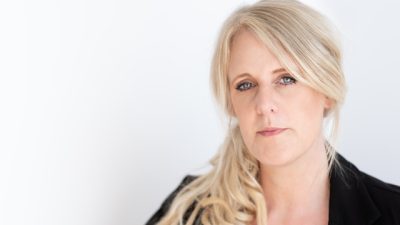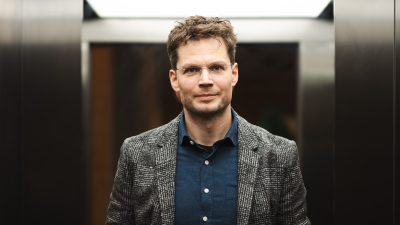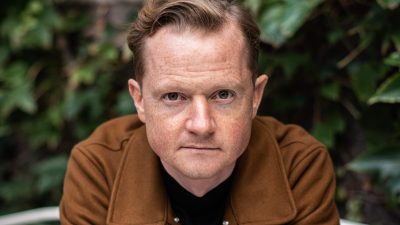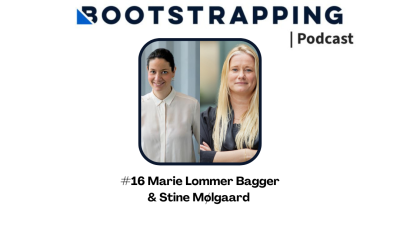
Article #1 – Impact Investing Report: Where do Nordic Investors go from here?
The Impact Report: Where do Nordic Impact Investors go from here?
We kick off our new series on Impact Investing in the Nordics by looking back to look forward. Richard Georg Engström, founder and executive director of The One Initiative, takes us through a brief history of Impact Investing and asks: Where do Nordic Investors go from here?
This is no. #1 article in a series about Nordic investments in impact, Bootstrapping are publishing from the Impact Report Nordic Investors 2020 in collaboration with The One Initative. The report is sponsored by +Impact by Danske Bank, Vækstfonden, Novo Nordisk Fonden & Nordic Innovation.
We have a diverse history pointing at impact investments. Where should Nordic investors take it from here?
Business as usual: Is it, still, all about the money?
In 1970 Milton Friedman argued that a company has no social responsibility to the public or society. Its only responsibility is to its shareholders and to conduct the business in accordance with their desires. Now some 50 years later, the shareholder theory still holds the dominant view in most of the corporate world. Although the concept is refined it is also foundational to the worldwide startup and investor ecosystem. To be a shareholder is the prerequisite for both the risk taking and the opportunity for financial success as a founder. And from an investors perspective, a team of founders that can lead and execute is more often the key to success than the technology itself.
The new millenium and the introduction of Corporate Shared Value
In 2011, Professor Michael E. Porter and Mark R. Kramer – social impact experts and co-founders of the global mission driven consulting firm FSG – published the article ‘Creating shared value.’ in Harvard Business Review. Their premise was simple: that the capitalist system is under siege. Creating shared value (CSV) soon became a broadly adopted business concept, with its central premise being that the competitiveness of a company and the wellbeing of the communities surrounding are mutually dependent. Framed in this new paradigm of a connected societal and economic progress, CSV has the power to unleash the next wave of global growth and to redefine capitalism. 5 years previous to the launch of CSV, in 2006, Rockefeller Foundation launched the ‘Impact Investing Initiative’ and hereby coined the term – as well as the UN Principles for Responsible Investment being instated. A few years later in 2009, The Global Impact Investing Network (The GIIN) was founded with the ambition of developing the impact investing industry. To date, this network numbers over 20,000 investors and leaders.
Entering the 2020’s: Digitalisation, Rapid Scaling and Climate Action
Whilst business ethics theories are changing norms towards sustainability, there are a number of other macro trends which hold significant influence. With the birth of the Internet and it’s ongoing adoption across the globe since the 1990’s, entrepreneurship has become a defining principle of the international business landscape. Tech entrepreneurs and early-stage companies who started out in the early 2000’s have become some of the most influential companies in the world. Scaling is the common denominator among investors and founders. Innovation and entrepreneurship is one of the main characteristic for business life in the 21st Century.
The acceleration of the climate crisis in recent years has called urgent attention to the need for bold environmental action. In September 2015, we obtained a common global language to address the need for sustainable development with the 17 UN Sustainable Development Goals (SDGs). The adoption of the SDGs by 193 countries has begun to send ripple effects through business and civil society as they increasingly define governmental and business strategies.
A wake up call from our children?
A large global movement of people was touched by Greta Thunberg in 2018 and 2019 raising her voice to the leaders of the world. She called international attention to the need to acknowledge the scientific evidence and take heed to climate experts. Shame has also come on the agenda as a driving force for change. Some think it’s good. Some don’t. Though the debate has been at times polarised, there remains positive indications that things are changing. In 2019 Amazon announced it would meet the terms of the Paris Climate Agreement 10 years ahead of schedule after mounting pressure from employees. And in February 2020 Jeff Bezos, Amazon’s chief executive, committed USD 10 billion to the Bezos Earth Fund, an initiative to fund scientists, activists and NGOs to explore new ways of fighting the devastating impact of climate change.
Impact Investing in the Nordics – solving the BIG problems?
In light of these megatrends, how do Nordic investors focussed on early-stage companies approach these changes to our economic, technological, social and climate systems? Amongst business angels, VC funds, family offices and similar early-stage investors, there is an emerging consensus that a mix of innovation, technology and sustainability will be key to solving the world’s biggest challenges. As a result, impact startups are becoming the talk of the town.
Whilst impact startups represent an exciting way forward for investors aiming to accelerate sustainable development, there is no one-size-fits-all rule. For those looking to invest for impact, there are many nuances to consider which is what we are looking to unfold in our 2020 market analysis, the 2nd edition of Impact Report Nordic Investors.
Four out of five investors say impact is very important to them
We see growing interest in impact investing and many signs of progress in this year’s survey. Geographies, causes, industries and solutions are becoming more and more diversified, with the market growing in both depth and sophistication. Four out of five investors state that impact investing is very important for them. And more than half of the respondents state that both the financial return and the positive impact from their portfolio has performed in line with their expectations – or even outperformed them.
In addition to collating survey responses, we have spoken with practitioners and thought leaders within the Nordic impact space – and beyond. It is our sincere hope that this report will help us collectively understand how we can accelerate the Nordic impact investing ecosystem when looking forward, and we are excited to collaborate with Bootstrapping on this series of articles highlighting different themes and aspects of this emerging industry.
NB! This first article in a series of six is just a short abstract of the many insights, analyzes and views from Impact Report Nordic Investors 2020. Please follow this series, which we hope you will enjoy reading, sharing and debating with your colleagues and peers in the impact startup and investor community. Our belief is that we joinly we can learn how to change the purpose of capital to serve many more people and the planet itself – not only the shareholders of the companies shaping our world.
This series of six articles about impact investing will be free to read and in English – and the report from The One Initiative can be freely downloaded too.
Facts and key figures – Impact Report Nordic Investors 2020
Download a free copy of the report here.
The underlying survey for the analysis was targeted at Nordic and Baltic private equity investors within early stage solutions – primarily business angels, venture capital funds, governmental capital funds, accelerators and family offices. The survey with 51 questions was conducted Q2-Q3 2020 and the report was launched by The One Initiative 9th of December 2020.
WHY INVEST IN IMPACT?
80% think impact investments provide opportunities for a good return.
61% answered that financial returns on impact investments are in line with or outperforming their expectations.
62% answered that their impact portfolio performance is in line with or outperforming held up against the impact expectations.
67% of the investors say that they expect to increase their impact investments.
HOW TO INVEST IN IMPACT?
74% state that they have a longer time horizon when investing in impact.
49% have to be more engaged in their impact investments than traditional investments.
49% see the need for more specialization to invest in impact.
WHAT TO INVEST IN FOR IMPACT?
Nordic investors chose Climate as their preferred theme (20%) followed by AgriFood (14%), Energy (13%) and Health (13%).
40% of investors have 100% of their private equity portfolio in impact investments.
43% of the respondents invest 100% of the private equity impact portfolio in technology.
WHERE DO THEY INVEST FOR IMPACT?
76% of investors invest primarily within Nordics.
Only 16% chose the possibility to have a positive impact as the reason to invest in developed markets.
42% of investors are primarily driven by deal flow and the types of solutions available, when prioritizing a certain market and 11% because of their expertise.
30% of the respondents have chosen impact as the main reason to invest in emerging markets.













Comments